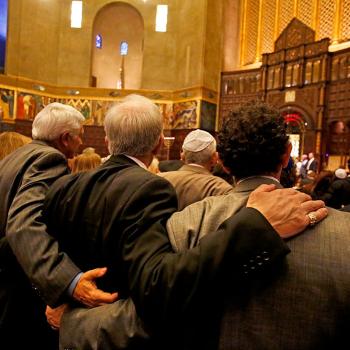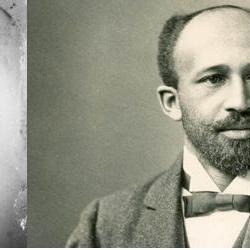
What Does 2 Chronicles 7:14 Mean?
“If my people, which are called by my name, shall humble themselves, and pray, and seek my face, and turn from their wicked ways; then will I hear from heaven, and will forgive their sin, and will heal their land.”
While this verse comes from the Hebrew Bible and, thus, from the canon of Jews and Christians, here's how 2 Chronicles 7:14 might resonate with or find parallels in the different religious traditions of the world today:
Buddhist Perspective:
While many Buddhists do not worship a personal deity, the idea of humility, self-reflection, and turning away from negative actions aligns with Buddhist principles–as does the practice of forsaking attachments (or “turning from wicked ways”). Buddhists value the path of self-improvement, mindfulness, and seeking inner peace–all of which have some place in 2 Chronicles 7:14. For some Buddhists, such as those in the Mahayana or Vajrayana traditions, “seeking the face” of the divine could be parallel with seeking the aid of Bodhisattvas or “savior beings.”
Christian Perspective:
There is actually some debate among Christians as to whether this passage has a place in contemporary Christian practice. The debate centers around two issues: First, is 2 Chronicles 7:14 supportive of a “works based” approach to salvation? Second, is this passage part of the “Law”--which Christ fulfilled? Regardless, for many Christians, 2 Chronicles 7:14 underscores the importance of repentance and seeking God's forgiveness. The call to humble oneself, pray, and turn from wickedness resonates with Christianity's emphasis on developing a personal relationship with God and experiencing the transformative power of His grace.
Hindu Perspective:
The concept of seeking God's face, repentance, and turning away from wrong actions can be compared to Hindu practices of self-purification and seeking divine blessings. Hindus often engage in “puja” (or worship) through prayers, rituals, offerings, and acts of charity–in order to restore balance and harmony to the world and to their lives. With the primary goal of getting off the “wheel” or reincarnation–accomplished through becoming one with Brahman (the Ultimate God of Hinduism)--2 Chronicles 7:14 has strong parallels with Hindu practice.
Islamic Perspective:
The themes of humility, prayer, seeking God's mercy, and turning away from wrongdoing align closely with Islamic teachings. Muslims emphasize repentance (or “Tawbah” in Arabic) and the importance of seeking Allah's forgiveness through prayer and acts of righteousness. Because Islam teaches that parts of the Hebrew Bible were actually given by Allah in previous eras, and were inspired–just as the Qur’an is an inspired book; some Muslims would actually perceive 2 Chronicles 7:14 as a divinely given passage (in its day)--though superseded by the Holy Qur’an today.
Jewish Perspective:
In Judaism, 2 Chronicles 7:14 is part of the canon of this ancient Abrahamic faith. Chronicles' call to humility, prayer, and turning from wicked ways resonates with the Jewish concept of Teshuvah (or “repentance”)--at least for observant Jews. Judaism has traditionally placed great importance on seeking God's forgiveness, especially during times of reflection and repentance, such as Rosh Hashanah and Yom Kippur. While some contemporary Jews are less focused on such issues today, in the Orthodox traditions (in particular), this emphasis remains strong.
The Church of Jesus Christ of Latter-day Saints (or “Mormon”) Perspective:
Latter-day Saint Christians put a great deal of emphasis not simply on the grace of Christ, but also on the principle of repentance–as taught in the New Testament. For members of The Church of Jesus Christ of Latter-day Saints, this verse emphasizes the principle of change (i.e.,repentance, which means to “change”) and seeking God's guidance in one’s personal life. 2 Chronicles 7:14 also aligns with the LDS belief in personal responsibility, prayer, and striving to follow God's commandments.
Pagan Perspective:
Many Pagan traditions emphasize personal growth and harmony with the natural world. For Pagans, the divine is perceived as heavily present in nature. 2 Chronicles 7:14’s call to humility, seeking divine guidance, and turning away from negative actions would resonate with many Pagans, who value maintaining balance and positive relationships with both the divine and the earth. Anything that harms nature would be seen as comparable to the “wicked ways” of 2 Chronicles 7:14.
Sikh Perspective:
In Sikhism, the themes of humility, prayer, and turning from wrongdoing align with the teachings of the 10 mortal Gurus, who highlighted the need for humility (or “Nimrata”), prayer or meditation (called “Simran”), and ethical conduct or service (called “Seva”). Sikhs believe strongly in seeking God's guidance and living in accordance with moral principles and, thus, the teachings of 2 Chronicles 7:14 would resonate with most Sikhs.
As always, these perspectives offer a generalized view, and individual beliefs within each tradition may vary. Religion is deeply personal, and interpretations can be diverse even within a specific faith tradition.
8/23/2023 10:42:02 PM









